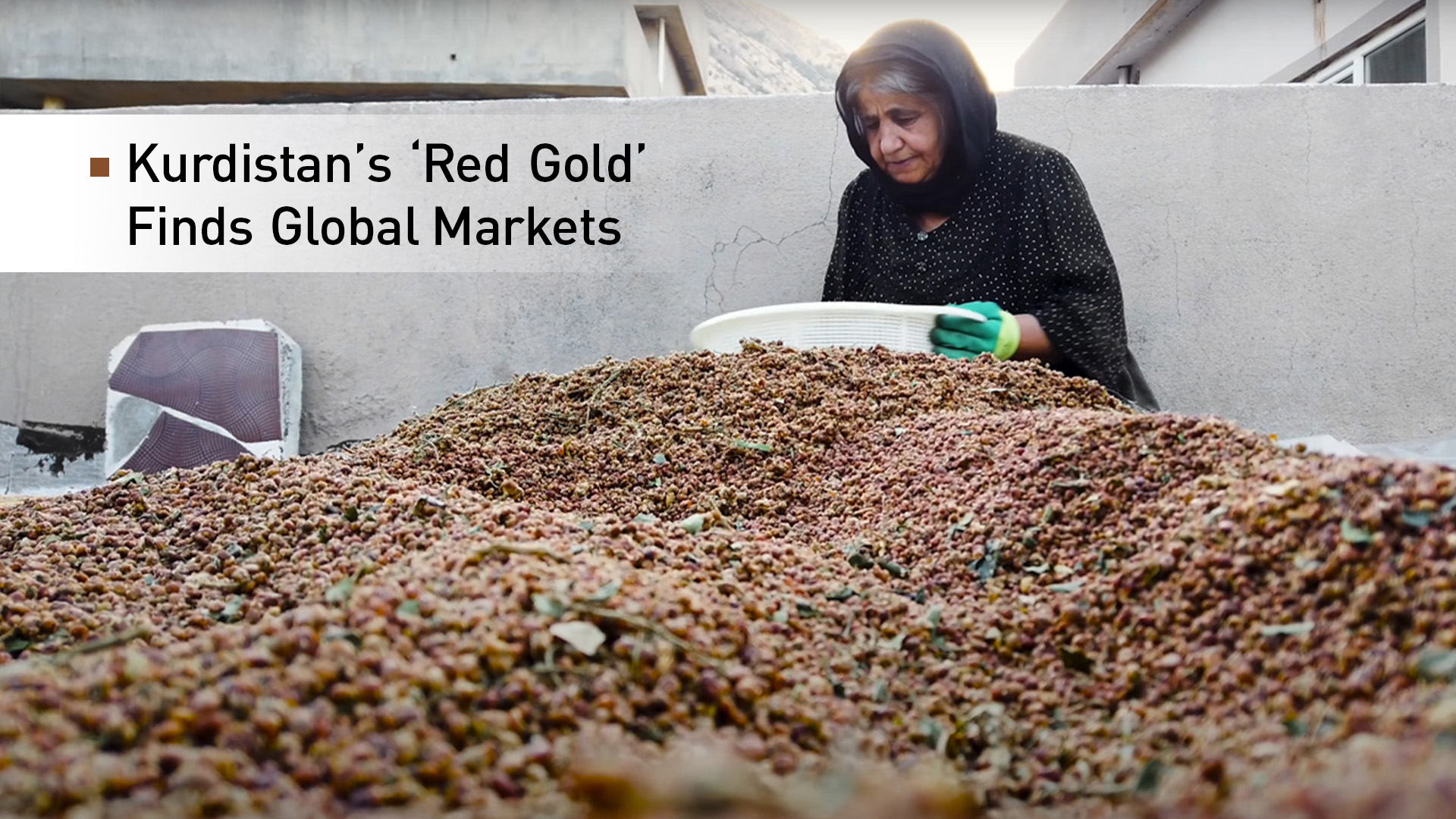‘Red Gold of Kurdistan’: Farmers Reap Record Harvests, Exports on the Rise
Sumac production in Kurdistan is booming, with officials calling it 'red gold' as exports to Türkiye increase. However, the sector's full potential is hampered by stalled plans for dedicated processing factories.

ERBIL (Kurdistan24) — Hailed by agricultural officials as the new "red gold of Kurdistan," sumac production in the region has surged by 20 percent this year, with a projected harvest of nearly 7,500 tons and hundreds of tons already exported to Türkiye. This success, however, is tempered by the reality that plans for two dedicated processing factories remain stalled due to a financial crisis, highlighting both the immense potential and the lingering infrastructure challenges within the Kurdistan Region's burgeoning agricultural sector.
In a statement to the Kurdistan24 website on Wednesday, Ahmed Jamil, the Director General of Duhok Agriculture, announced that the area planted with sumac has reached 12,550 donums of land, with this year's total production expected to reach 7,480 tons.
The high market value of the crop has been a key driver of this growth. Mr. Jamil indicated that the price for white sumac, one of three main types produced in the region, reaches approximately seven thousand dinars per kilogram, while red sumac sells for about five thousand dinars and baliki sumac fetches between five and a half to six thousand dinars.
This strong domestic demand is complemented by growing international interest, as he confirmed that the Kurdistan Region has so far exported 665 tons of sumac to Türkiye this season.
Despite this clear success in cultivation and initial exports, the full potential of the sector remains unrealized.
Jamil noted that a decision had previously been made to build two sumac factories within the borders of Duhok and Akre provinces. However, these crucial infrastructure projects, which would allow for value-added processing and greater market stability, have not yet been implemented due to financial constraints.
This stands in contrast to developments in other parts of Duhok’s agricultural landscape, where similar challenges have been overcome.
The focused development of sumac is part of a broader, region-wide agricultural revival driven by the Kurdistan Regional Government's (KRG) ninth cabinet under Prime Minister Masrour Barzani.
The administration has prioritized agricultural reform to diversify an economy historically dependent on oil revenues. This strategy has been particularly visible in Duhok province, which is also Iraq’s top grape producer.
As previously reported by Kurdistan24, officials there are anticipating a 60,000-ton grape harvest this year, with the long-standing problem of selling surplus produce now being solved by the establishment of new processing factories. Mr. Jamil confirmed that a juice factory in the Mangesh area is now complete, providing farmers with a stable market for a product that once overwhelmed local demand.
The successful export of sumac fits into a larger pattern of the KRG expanding its agricultural footprint beyond its borders.
According to Hemin Sayed Murad, Director General of Agriculture in Erbil, the Kurdistan Region is exporting more than 3,000 tons of local produce daily, including tomatoes, onions, and cucumbers, to markets in federal Iraq and beyond.
This export drive is a core component of the KRG’s economic diversification plan, which has also seen initiatives like the Kurdistan Agriculture Export Initiative (KAEI) successfully send pomegranates, apples, and honey to Gulf and European markets.
While the thriving sumac fields demonstrate the success of boosting cultivation and finding export channels, the stalled factories serve as a critical reminder that developing robust, local processing infrastructure is the essential next step to fully capitalizing on Kurdistan's agricultural wealth.
